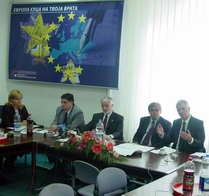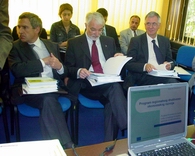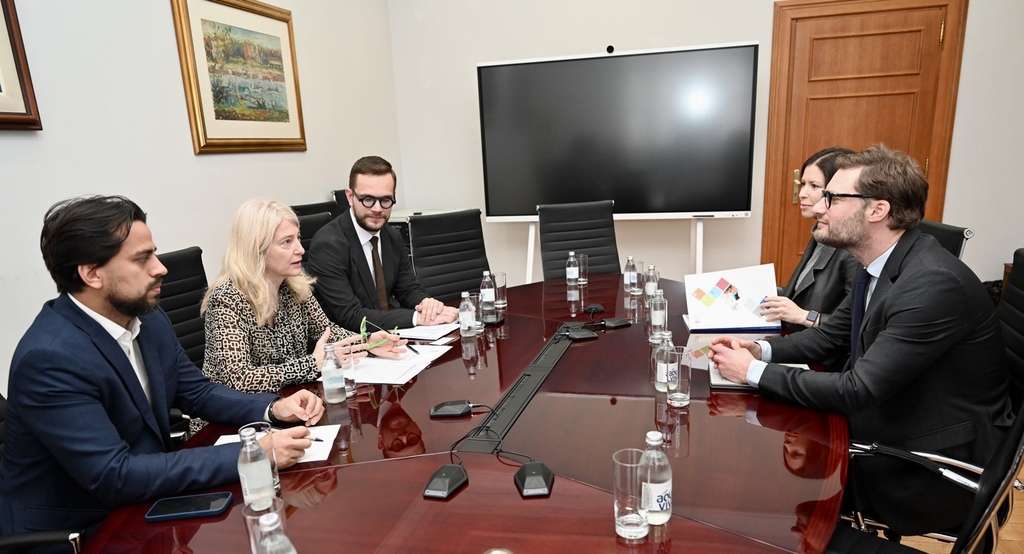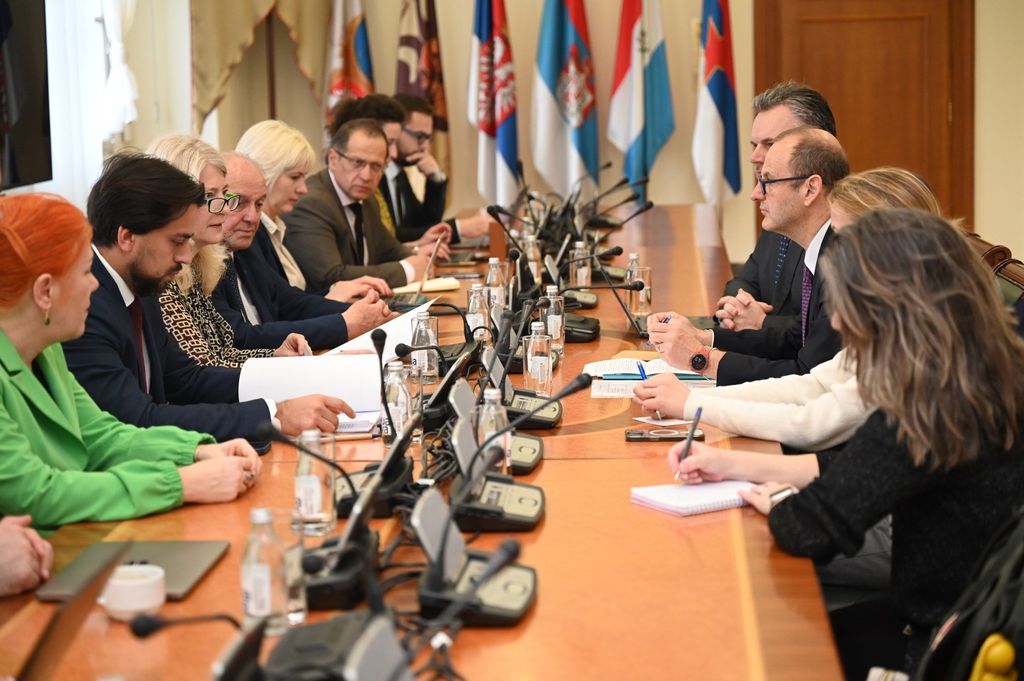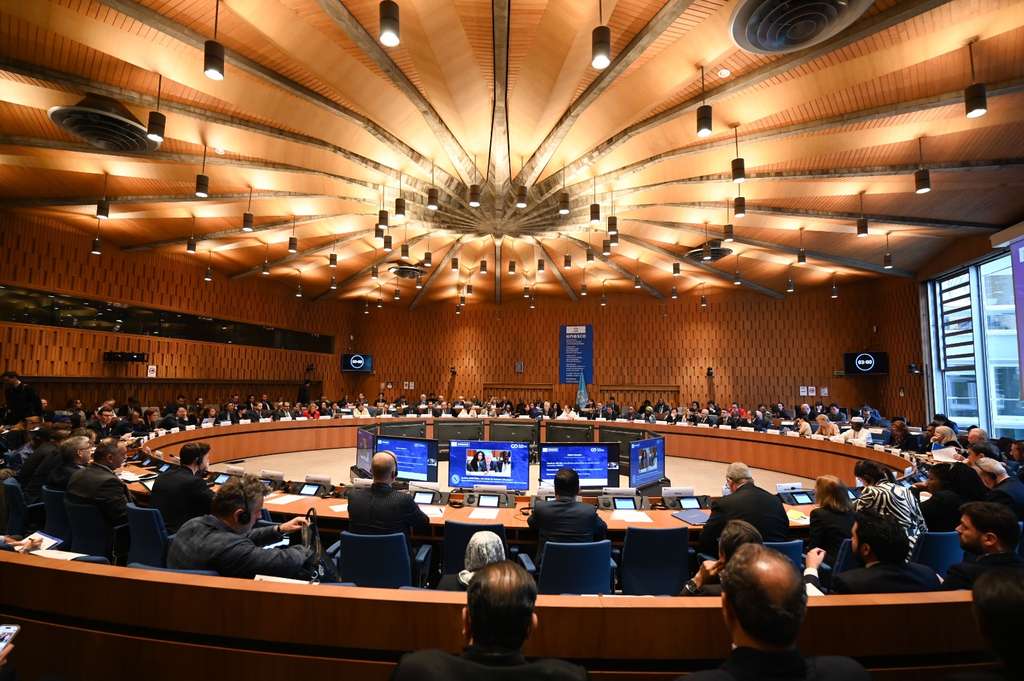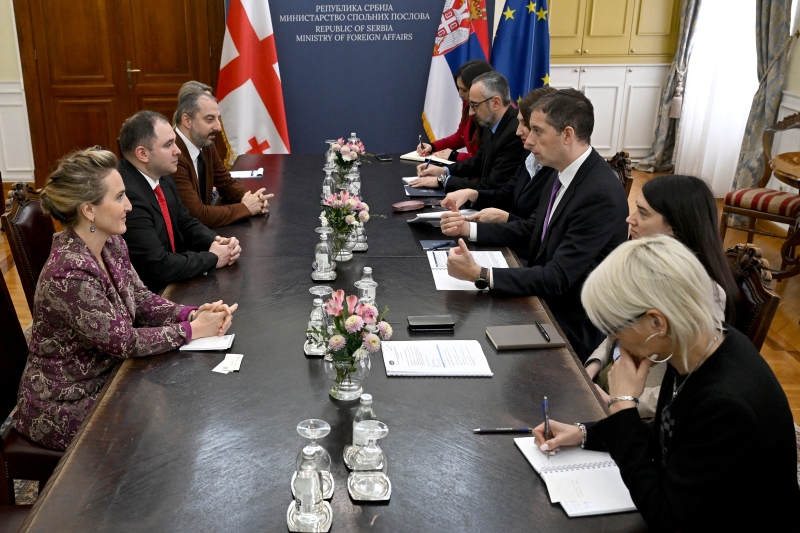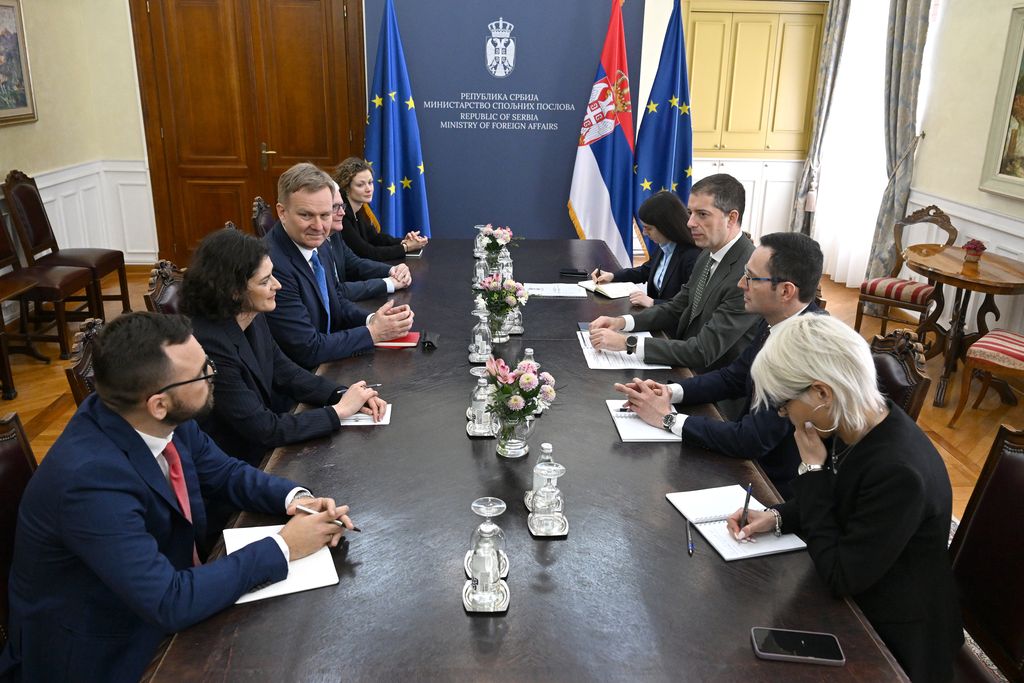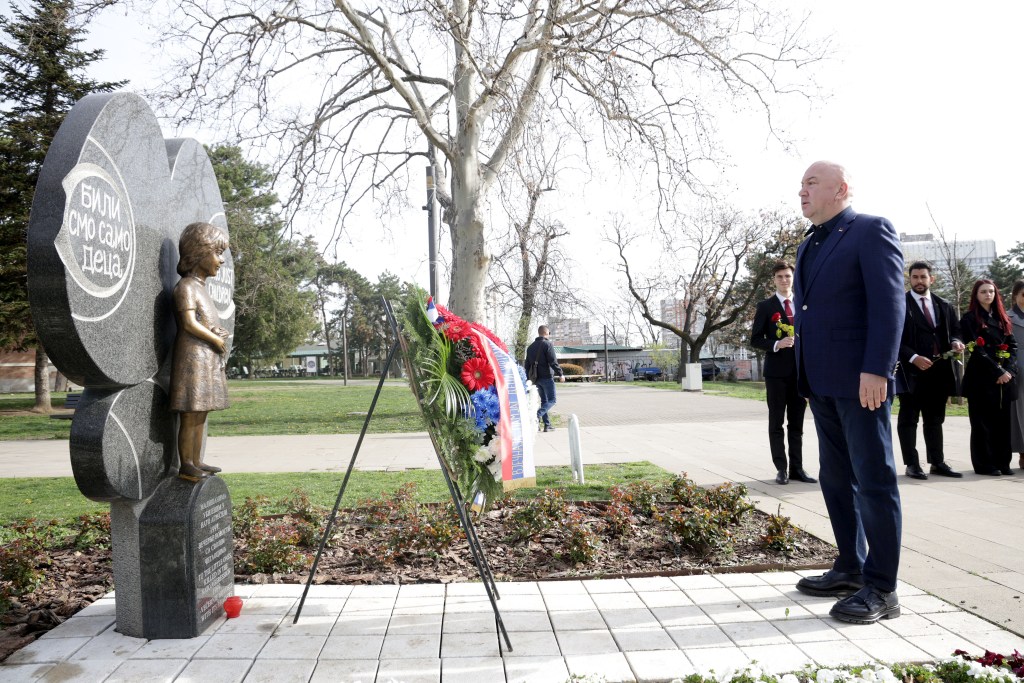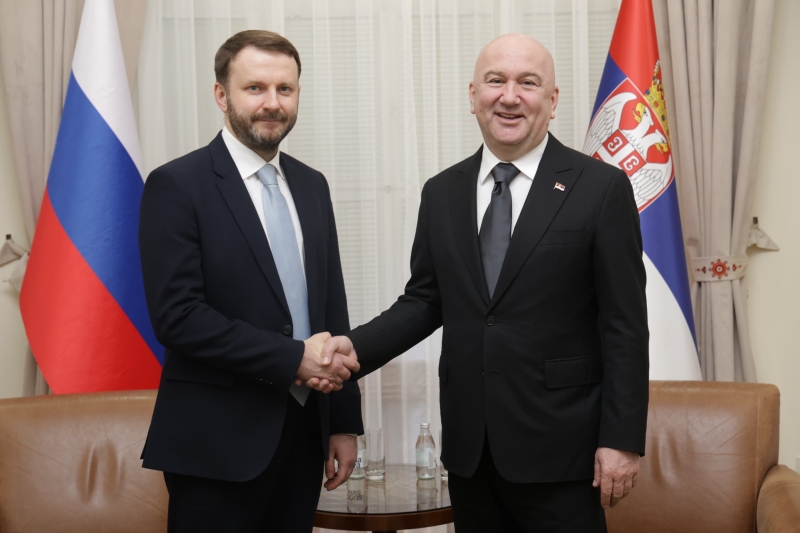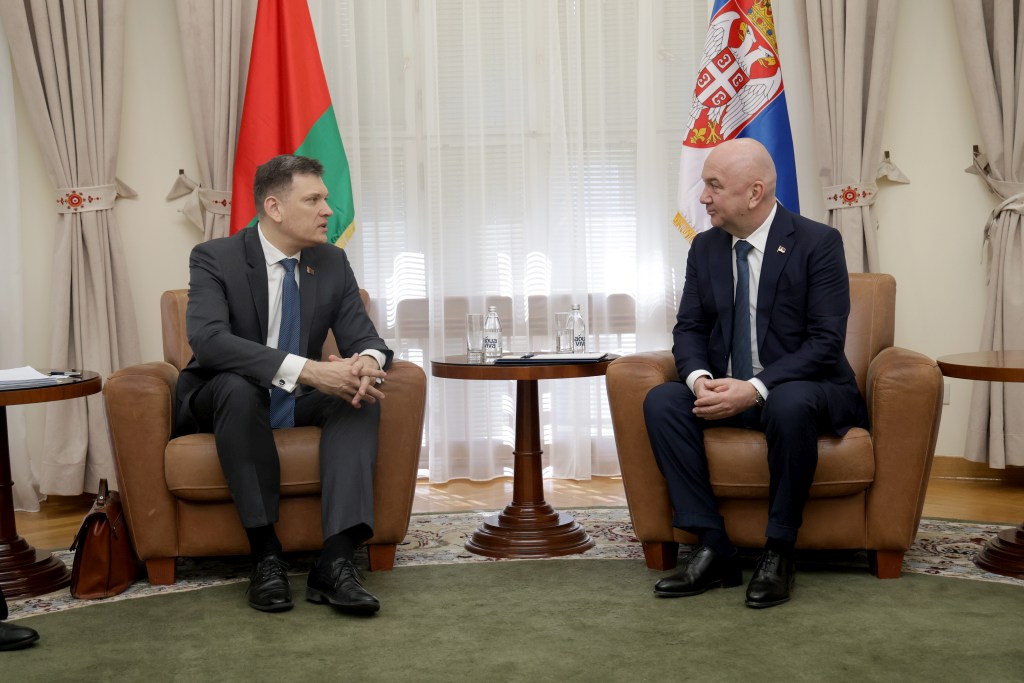Q:
A:
Government and other institutions to join forces in EU accession
Zrenjanin,
1 June 2005
Serbian Deputy Prime Minister Miroljub Labus, who is also head of the negotiating team with the EU, said today in Zrenjanin, as part of the “Europe Knocks on Your Door” campaign, that the country’s EU accession will need to involve the joint work of the government and other institutions in the country in order to create conditions necessary to speed up the process of joining the community of European nations.
The Serbian government’s delegation, accompanied by British Ambassador to Serbia-Montenegro David Gowan, held meetings with representatives of the textile industry and the local administration. They agreed that the country’s accession in the EU opens new possibilities for the development of local economy, more jobs, higher standards, decentralisation of powers and better organisation of the state.
According to him, the accession process offers great opportunities, but at the same time demands that certain steps are taken.
Labus spoke of the Zrenjanin textile industry, which used to employ 8,000 workers, noting that the current textile workforce in Zrenjanin is only 2,000. He said that it is necessary to get back into the textile market, noting that this will not be an easy task.
He explained that the signing of the textile agreement with the EU is a great chance to get this started and added that investment risk in the country has fallen considerably. He reiterated that the launch of the negotiations for EU accession would send a positive signal to potential investors in Europe.
Labus reiterated that the future of the local textile industry lies in exports on the European market.
Speaking about prices of oil derivatives, Labus said that the government wants to reduce the excise tax and keep the current prices of derivatives. The issue of oil supply depends on the relation between the Oil Industry of Serbia and owners of private petrol stations, Labus explained.
The Deputy Prime Minister said that he does not expect a shortage in the oil supply because there is enough oil in tanks and prices are such to cover expenses and small margins.
Speaking about the recently signed agreement with Hungarian Prime Minister Ferenc Gyurcsany, Labus pointed out that one of the important aspects of European integration is development of inter-regional cooperation, to which this agreement is contributing.
According to him, the accession process offers great opportunities, but at the same time demands that certain steps are taken.
Labus spoke of the Zrenjanin textile industry, which used to employ 8,000 workers, noting that the current textile workforce in Zrenjanin is only 2,000. He said that it is necessary to get back into the textile market, noting that this will not be an easy task.
He explained that the signing of the textile agreement with the EU is a great chance to get this started and added that investment risk in the country has fallen considerably. He reiterated that the launch of the negotiations for EU accession would send a positive signal to potential investors in Europe.
Labus reiterated that the future of the local textile industry lies in exports on the European market.
Speaking about prices of oil derivatives, Labus said that the government wants to reduce the excise tax and keep the current prices of derivatives. The issue of oil supply depends on the relation between the Oil Industry of Serbia and owners of private petrol stations, Labus explained.
The Deputy Prime Minister said that he does not expect a shortage in the oil supply because there is enough oil in tanks and prices are such to cover expenses and small margins.
Speaking about the recently signed agreement with Hungarian Prime Minister Ferenc Gyurcsany, Labus pointed out that one of the important aspects of European integration is development of inter-regional cooperation, to which this agreement is contributing.
British Ambassador to Serbia-Montenegro David Gowan said that the British Embassy has a very active commercial department responsible for increasing the volume of trade with Serbia-Montenegro and for informing British investors about developments in the Serbian market.
Gowan said that the most important assistance that Great Britain can offer to Serbia-Montenegro is in its support to Serbia-Montenegro's accession to the EU.
Gowan extended congratulations to the state union for obtaining a positive feasibility study and stated that the Serbian government, Prime Minister Vojislav Kostunica and Deputy Prime Minister Miroljub Labus all have done a lot of work on the rule of law.
The British Ambassador said that sizeable progress has also been made in the cooperation with the Hague tribunal.
Apart from Serbian Deputy Prime Minister Miroljub Labus and the British Ambassador, the delegation visiting Zrenjanin also included head of the European Commission delegation Josep Lloveras and Secretary of the Serbian government's EU Integration Office Tanja Miscevic. During the afternoon, a visit was planned for the Nikola Tesla secondary school of electrical engineering, where a lecture will be held on the topic "Serbia and the European Integration".
Gowan said that the most important assistance that Great Britain can offer to Serbia-Montenegro is in its support to Serbia-Montenegro's accession to the EU.
Gowan extended congratulations to the state union for obtaining a positive feasibility study and stated that the Serbian government, Prime Minister Vojislav Kostunica and Deputy Prime Minister Miroljub Labus all have done a lot of work on the rule of law.
The British Ambassador said that sizeable progress has also been made in the cooperation with the Hague tribunal.
Apart from Serbian Deputy Prime Minister Miroljub Labus and the British Ambassador, the delegation visiting Zrenjanin also included head of the European Commission delegation Josep Lloveras and Secretary of the Serbian government's EU Integration Office Tanja Miscevic. During the afternoon, a visit was planned for the Nikola Tesla secondary school of electrical engineering, where a lecture will be held on the topic "Serbia and the European Integration".







